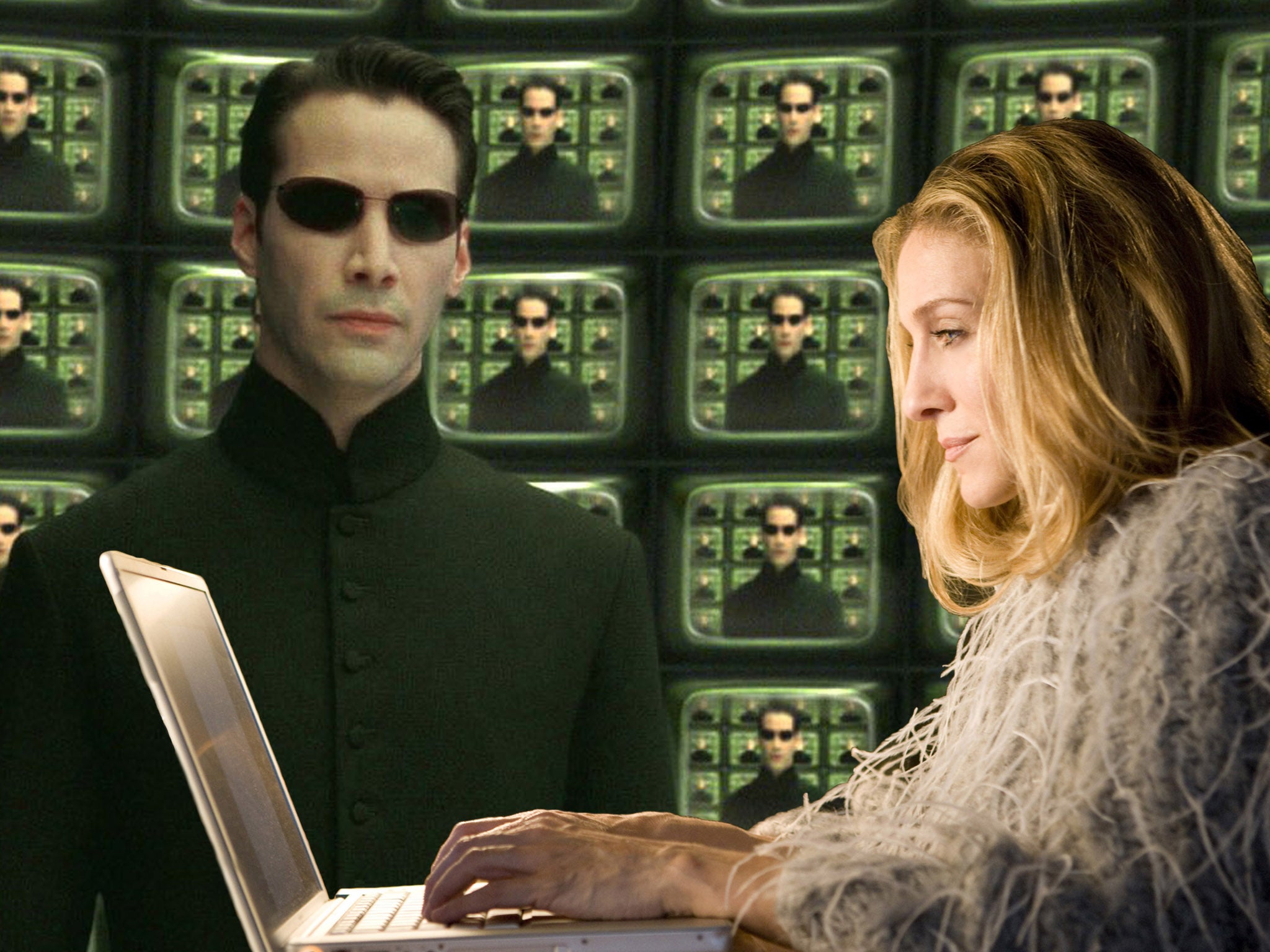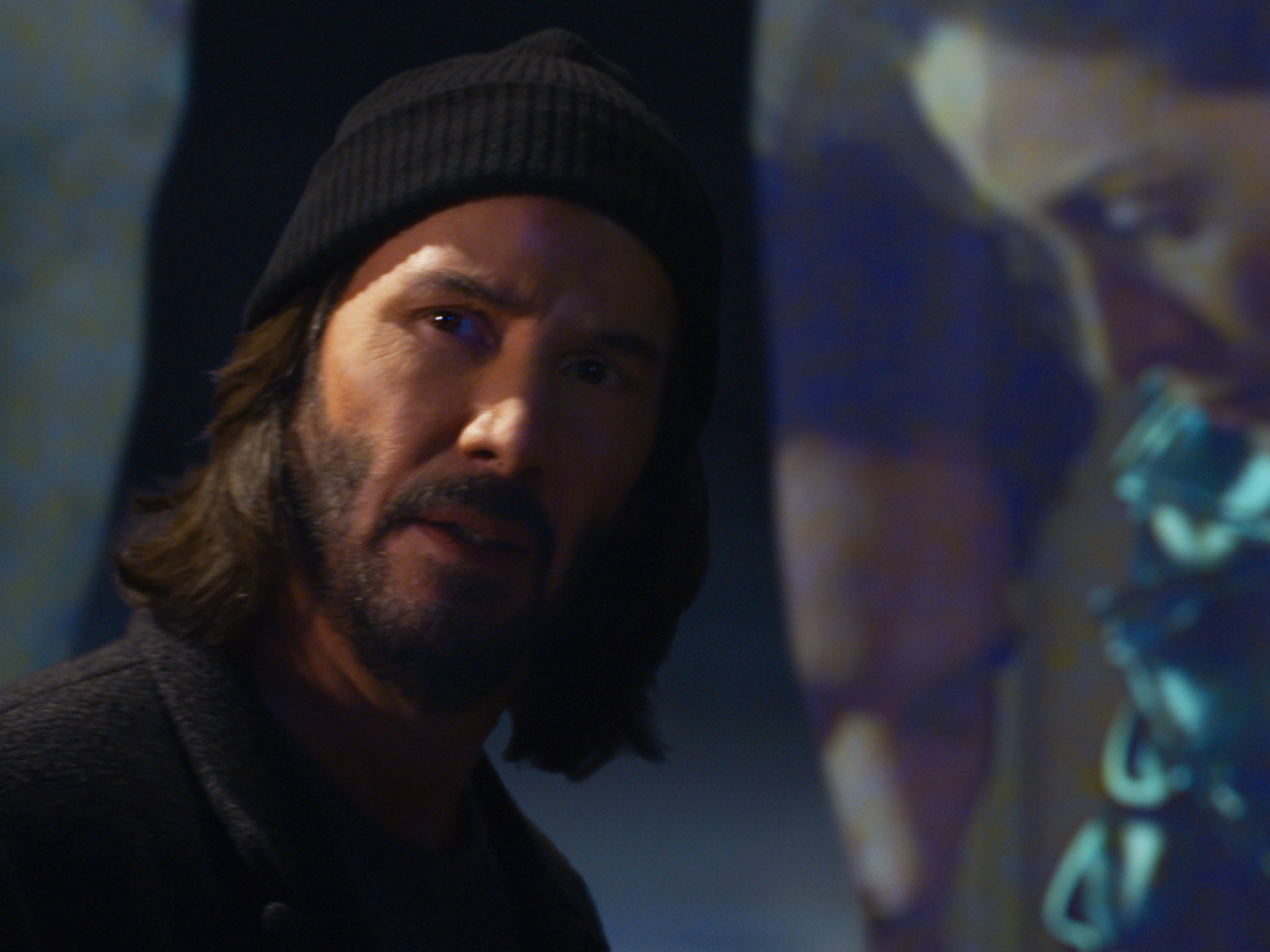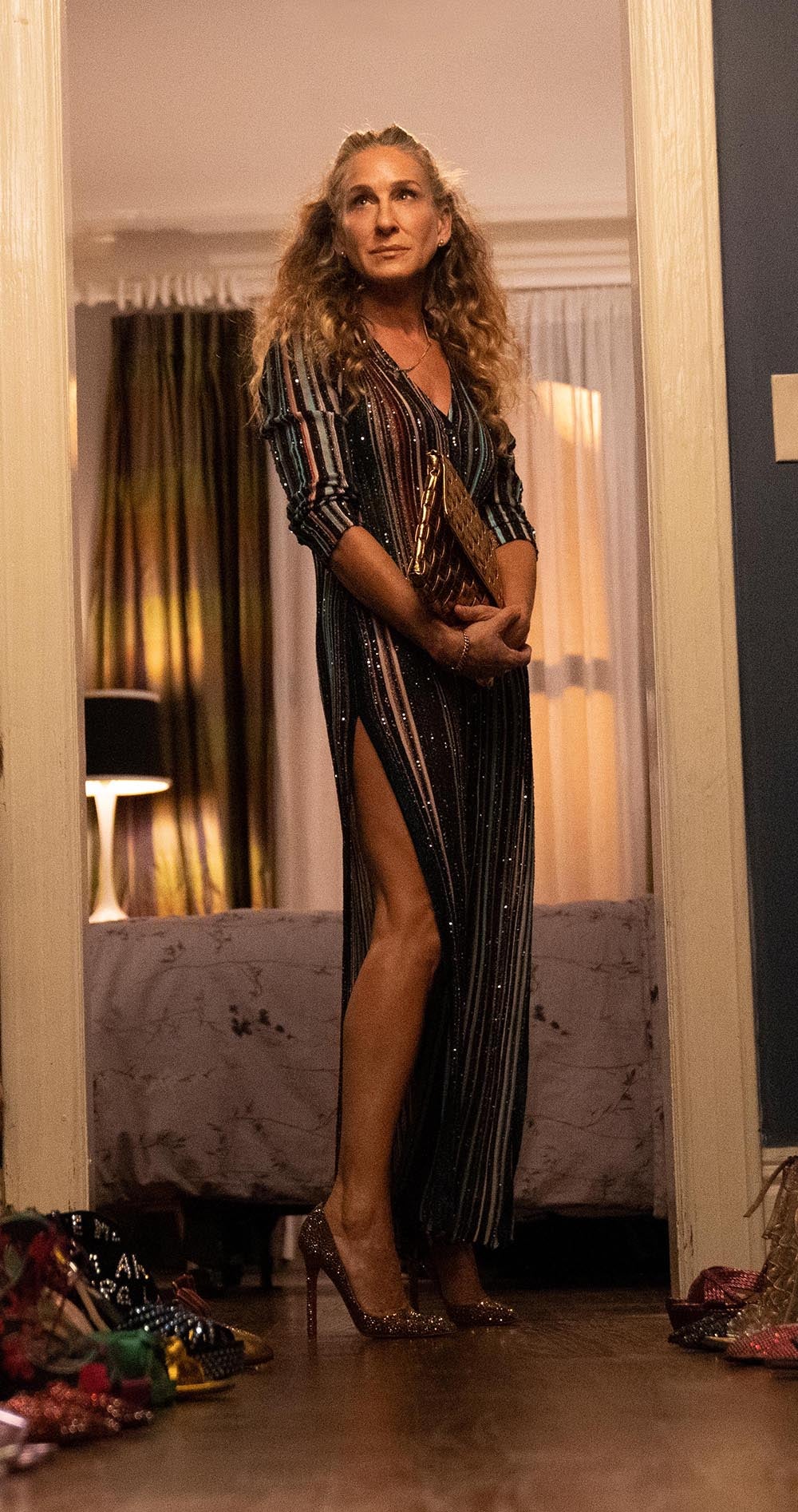The Matrix and Sex and the City reboots dared to be different – so why the tepid response?
You may not think it, but ‘The Matrix’ and ‘Sex and the City’ share a raft of strange parallels, not least that they’ve returned at the same time and been beset by criticism by disappointed fans. But if reboot culture is our new normal, asks Adam White, why aren’t we more praising of their bravery and ambition?


The Matrix Resurrections and the Sex and the City revival are haunted house stories. They both look the same as their culture-shifting predecessors, but they’re also morbid and deflating, difficult almost by design. They are the tonal opposites of their earlier incarnations – Resurrections far sunnier and hopeful, And Just Like That sapped of colour. Their main characters are endlessly stalked by their far glitzier pasts, which they reflect upon with a mixture of regret and yearning. And they’ve both gone down like cups of cold sick.
It makes sense that The Matrix has returned and proven divisive at the same time that Sex and the City has. Despite few thinking of ever putting them together in the same galaxy let alone in the same sentence, they’ve always shared odd parallels. Debuting in the Nineties within 10 months of each other, they both revolved around beautiful daydreamers – Keanu Reeves’s Neo and Sarah Jessica Parker’s Carrie – often found frantically tapping away at their keyboards. Both characters lived in artificial metropolises, be it a glamorous yet affordable New York City that only existed in screenwriting fantasy, or an anonymous cityscape too perfect and functional to be real. At their peak, both projects had a mutual stranglehold on fashion, while the landscape of film and television is today unimaginable without their influence. They once even crossed over, in a long-forgotten sketch for the 2000 MTV Movie Awards in which Carrie dated Neo (played by a risible Jimmy Fallon) – “I agreed to go with him to this club called The Matrix,” Carrie tells her friends, “but first we went back to his place for a glass of wine.”
Where they were most similar, though, is in the discourse they sparked. The Matrix was always being co-opted by nefarious forces – Neo’s “red pill” to see reality for what it truly is was infamously adopted by the far-right – or being blamed for real-world violence. Sex and the City, meanwhile, drew criticism from all quarters for its depictions – or lack thereof – of sexuality, money, race or class. Their respective reboots tangle with these legacies in different ways, both celebrating and distancing themselves from what they used to be. And Just Like That depicts its characters as out of touch; The Matrix Resurrections depicts a good proportion of Matrix fans as misguided oddballs.
Possibly as a result, neither revival has been unanimously embraced. Even if we put aside the way Spider-Man: No Way Home has hoovered up the box office over the last month, The Matrix Resurrections has been a financial disappointment, so far grossing just $100m (£73m) on a budget of nearly twice that. Critics have largely loved it, but audiences polled after screenings in the US also gave it a “B-” grade overall, the worst in the franchise so far. And Just Like That was met with tepid reviews by most critics (if not, ahem, by me for The Independent), and has increasingly polarised fans as it’s gone on.
Both responses make sense. The Matrix Resurrections is devoid of much of the action spectacle that defined the earlier movies, and is sometimes ambitious to a fault. And Just Like That is also aggressively downbeat – it began with the death of a major character, and has since revolved around stories of grief, ageing, alcoholism and depression. The great signifiers of the original show, from shoes and sex to puns and mimosas, have been barely present.
There’s something fascinating about their abject disinterest in replicating the past, though, and how often both reboots lean into the vaguely destructive. The Matrix Resurrections begins with an elaborate in-joke almost designed to rile fanboys. “I’m sure you can understand why our beloved parent company, Warner Bros, has decided to make a sequel to the trilogy,” explains Jonathan Groff’s nefarious Agent Smith, as he practically forces a depressed video game designer to rehash his creative past.
In Resurrections, Neo’s alter-ego Thomas Anderson made a trio of genre-defining video games known as “The Matrix”. They’re beloved by nerds who don’t really understand them, and corporate entities are eager to drain them for further profit. Anderson is told that he can be the one to shepherd a reboot of the game, but that his refusal won’t stop a reboot getting made anyway. He ultimately has a choice: go along with a revival or allow others to take it over for him.

Resurrections grows more complex from there, roping in further simulations of reality, a mystical utopia at the bottom of the universe and Jada Pinkett Smith in old-age make-up. But its early scenes feel antagonistic, a full-bodied admission that this is a film that doesn’t need to exist. And if it must exist, it will be done in the most perplexing and unlikely way imaginable. Director Lana Wachowski has spoken about using the film to pull herself out of the grief of losing her parents, but it also feels like the filmmaker taking back ownership of her series. The Matrix has, after all, hovered in the ether for so long, poked and moulded into unrecognisable nonsense courtesy of hate sites like 4Chan and the duelling inanity of Elon Musk and Ivanka Trump. Then Wachowski arrives again, laying down the gauntlet and effectively saying “not on my watch”.
And Just Like That has also refused to give us what we wanted. The clue may have always been there in the title – the show isn’t called Sex and the City for a reason – but it remains somewhat jarring. I’ve slightly cooled on the series since its first two episodes, but only because a handful of its storylines seem scattered and meandering, and not because it’s not Sex and the City. Rather, it’s ended up being a compelling curio if not an outright success, and a show that at least makes very bold choices.

Watch Apple TV+ free for 7 day
New subscribers only. £9.99/mo. after free trial. Plan auto-renews until cancelled.
ADVERTISEMENT. If you sign up to this service we will earn commission. This revenue helps to fund journalism across The Independent.

Watch Apple TV+ free for 7 day
New subscribers only. £9.99/mo. after free trial. Plan auto-renews until cancelled.
ADVERTISEMENT. If you sign up to this service we will earn commission. This revenue helps to fund journalism across The Independent.

Take Kim Cattrall’s Samantha. Written out off-screen when Cattrall refused to come back, Samantha could have stayed unmentioned once we’d been told what happened to her – she had a falling out with Carrie and fled to London – yet she remains lingering in the show’s ecosystem. Few episodes go by where she’s not referenced by name, and she’s even made appearances via text message, wistfully recalling with Carrie a particularly gynecological experience they once shared. It brought to mind Olivier Assayas’ spooky melodrama Personal Shopper, in which Kristen Stewart shares a lengthy iMessage exchange with her deceased twin, who seems to be texting her from the great beyond.
By turning Samantha into a kind of quippy spectre haunting Carrie’s dreams, And Just Like That is doing something it didn’t need to do. It’s not cutting corners, or whitewashing the long-lasting grief of ending an important friendship. Instead it’s resting in a prickly space with no easy answers, even teasing a reunion that – considering Cattrall’s apparent disdain for Parker in reality – we know probably won’t ever happen.
Both And Just Like That and The Matrix Resurrections should have earned praise for embracing that kind of narrative difficulty. That they’ve not – by critics or audiences or some melding of both – feels depressing. If reboot culture is Hollywood’s new normal, revivals should at least try and strive for something different in the confines with which they’ve been presented. It won’t always be successful, but it will at least be distinct. And if a choice has to be made between a revival that is frustrating and unusual and one that vapidly replicates everything we loved two decades ago, the answer seems a no-brainer.
Join our commenting forum
Join thought-provoking conversations, follow other Independent readers and see their replies
Comments


Bookmark popover
Removed from bookmarks